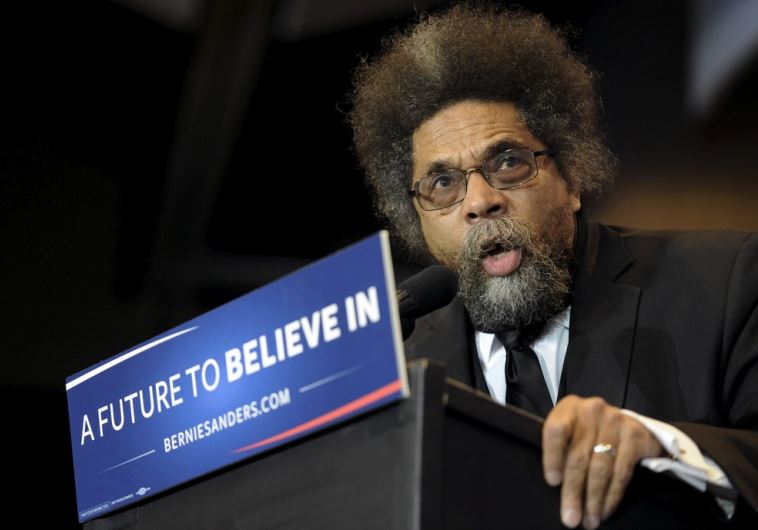Continued bipartisan support for the Jewish state and the future of US-Israel ties
How much longer will the Democratic Party be able to forestall the influence of a growing chorus of unfavorable voices on Israel?
 Cornel West speaks at a rally for Bernie Sanders
Cornel West speaks at a rally for Bernie Sanders